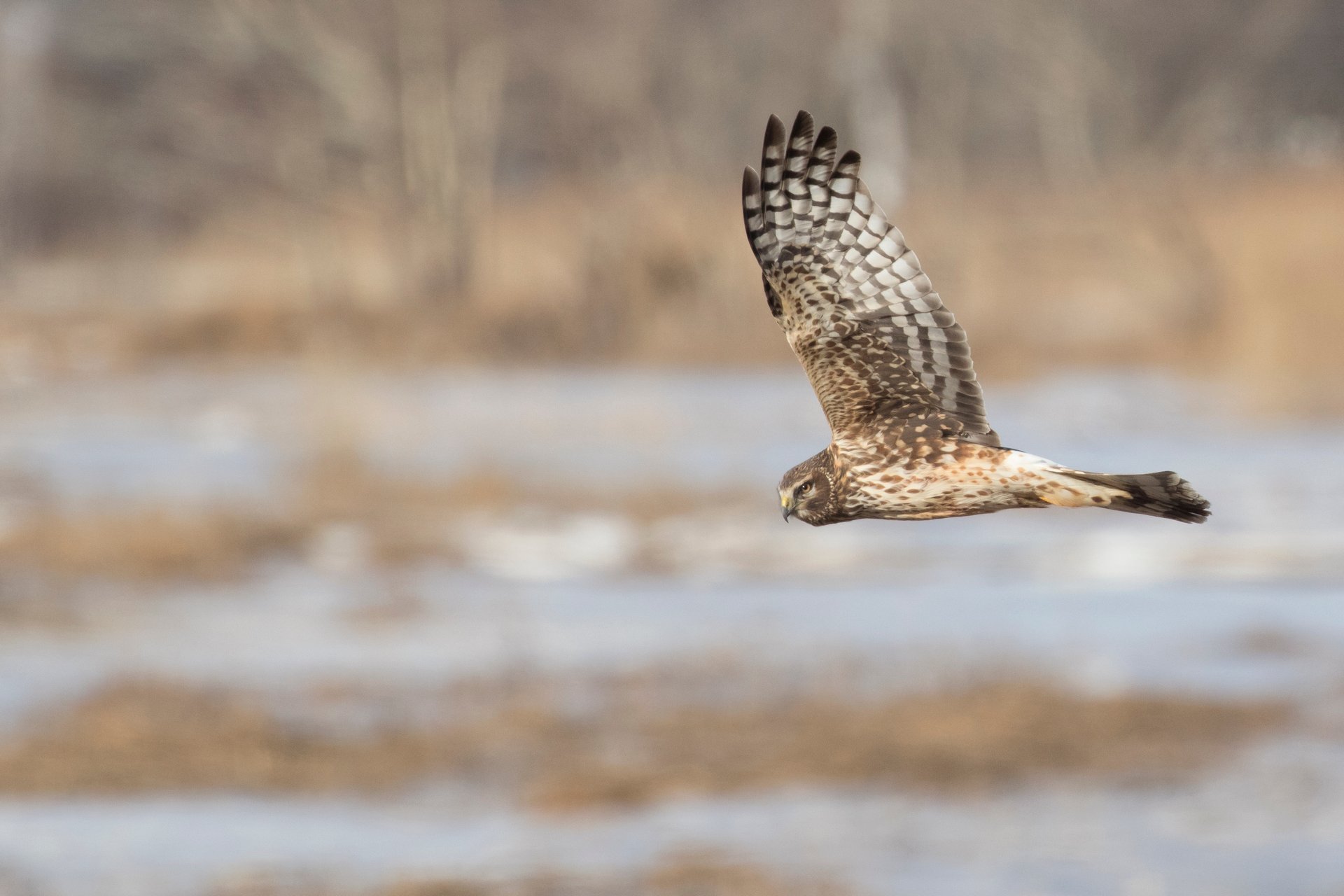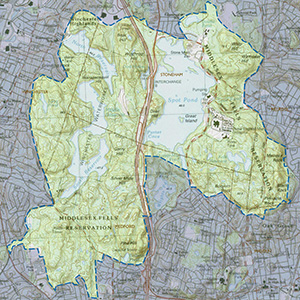Important Bird Area Sites in Massachusetts
Important Bird Area: Middlesex Fells
Site Summary
Nominated By
Marj Rines
Size
2,575 acres
Towns and Counties
Malden, Medford, Melrose, Stoneham, Winchester; Middlesex
Ownership
Department of Conservation and Recreation
Major Habitats
oak-conifer forest, early successional shrubland, cultural grassland, emergent freshwater marsh, shrub-scrub wetland, lake/pond, river/stream, urban/suburban,migratory stopover site
Land Use
recreation or tourism, water supply
Serious Threats
invasive non-native plants, cowbird parasitism
Minor Threats
recreational development/overuse
IBA Criteria
- Category 2: Land Birds: The site is an important migratory stopover or seasonal concentration site for migratory land birds (e.g., warblers). Sites may also qualify on the basis of supporting exceptionally high densities of breeding species as shown from point counts or other surveys or if they represent "migrant traps" relative to surrounding areas. Strong consideration will be given to areas with consistently high overall species diversity.
Site Description
The Middlesex Fells is a large tract of land lying only five miles from Boston and entirely inside Route 128. It is accessible through 50 miles of trails and carriage roads, and it is bisected by Route 93. Inside the Fells are several ponds, including Spot Pond, three connected reservoirs for the town of Winchester, and several smaller ponds. The Fells' history includes industrial use for timber, pasture, quarrying, ice, and waterpower. The Fells are largely wooded with mixed deciduous and coniferous second-growth forests that include a hemlock taiga and a sturdy grove of pines at Virginia Wood, and a red pine monoculture surrounding the Winchester reservoirs. A 10-acre meadow is at the Sheepfold area, and there are several smaller open fields and areas of low, secondary growth.
Current Conservation Status
Recreational overuse is an issue because it has damaged and widened many trails. Cowbird parasitism is presumed and inevitable in this fragmented area.
Ornithological Significance
The following data show average breeding numbers of the "Ramshead" area of the Fells, compiled over 10 years of regular censuses.
Eastern Wood-Pewee, 6-7 pr.
Great Crested Flycatcher, 4-6 pr.
Wood Thrush, 6-7 pr.
Gray Catbird, 30+ pr.
Brown Thrasher, 4-6 pr.
Scarlet Tanager, 5-6 pr.
Eastern Towhee, 25+ pr.
Baltimore Oriole, 15+ pr.
Data Sources
The above data show average breeding numbers of the "Ramshead" area of the Fells compiled over ten years of regular censuses by the nominator. The Ramshead section is the area southwest of South Border Road and represents approximately 10% of the entire Fells.




